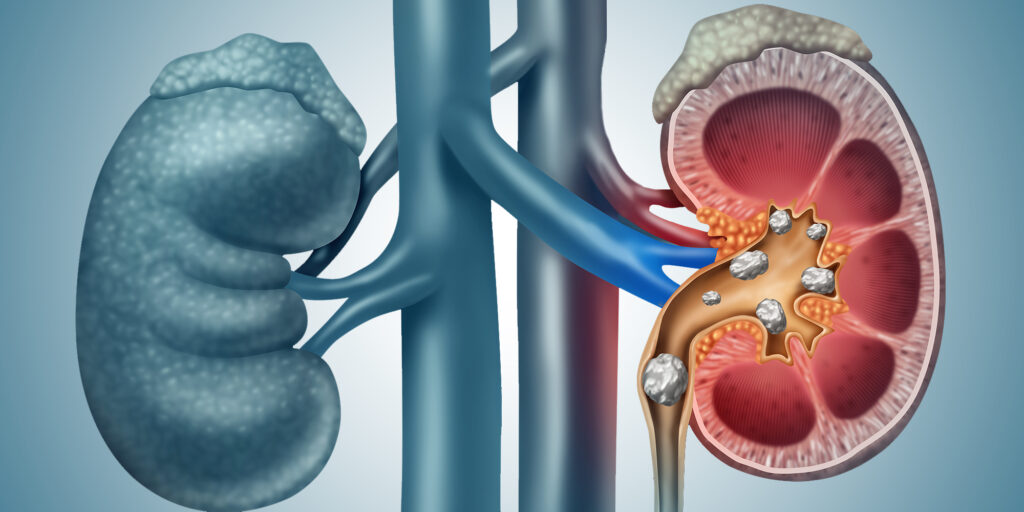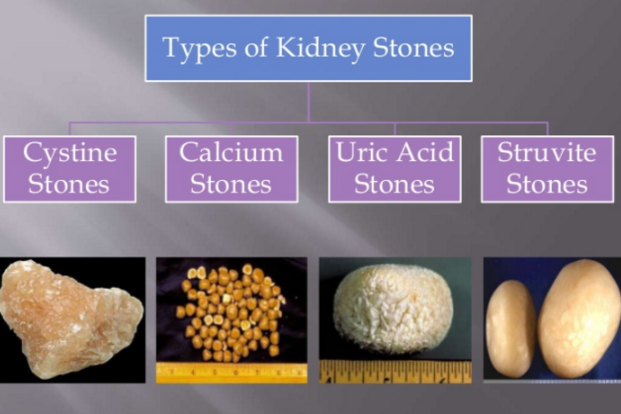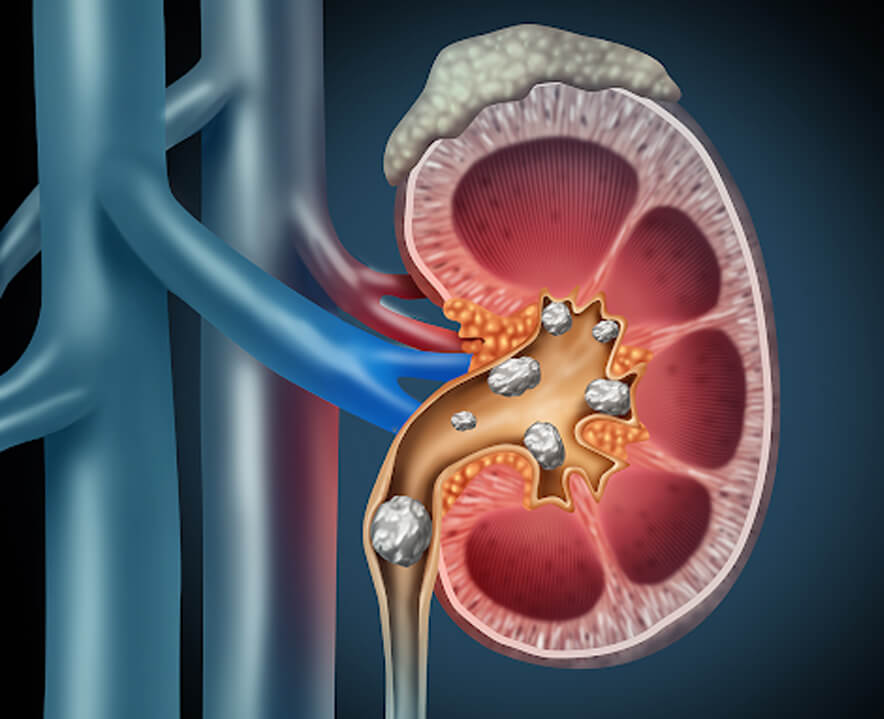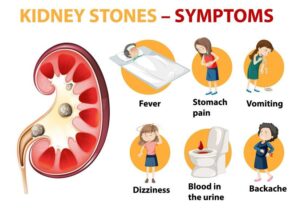
Kidney stones are formed in the body when the minerals and salts present in the urine start accumulating in solid form. These deposited substances take the form of stones in the kidney or ureter. This situation arises when the balance of some substances of urine is disturbed.
Causes of stone formation:
- Drinking less water: If there is a lack of water in the body, the urine becomes thick, due to which minerals and salts can easily condense and form stones.
- Diet: Foods containing excessive salt, protein and oxalate (such as spinach, tea, chocolate) can increase the risk of stone formation.
- Heredity: If someone in the family has had stones, then the chances of other members also getting stones increase.
- Metabolic disorder: Some people have high levels of calcium, oxalate or uric acid in their body, which can cause stones.
- Frequent urinary infections: Chronic urinary tract infections can also cause struvite stones.
Types of stones:

- Calcium stones: These are the most common type of stones, formed by the combination of calcium and oxalate or phosphate.
- Uric acid stones: These are formed when the urine becomes too acidic.
- Struvite stones: These are caused by urinary infections.
- Cystine stones: These are a rare type of stones, which are caused by a genetic disorder.
Preventive measures against stones:
- Drink enough water: Drink at least 8-10 glasses of water a day.
- Take a balanced diet: Avoid foods containing high salt and oxalate.
- Exercise regularly: Physical activity improves metabolism.
- Consult a doctor: If there is a history of stones in the family, then get regular checkups done as per the doctor’s advice.
If stones are formed, then the treatment is given by the doctor which may include medicines, lithotripsy (breaking the stones by shock waves) or surgery in severe cases.




